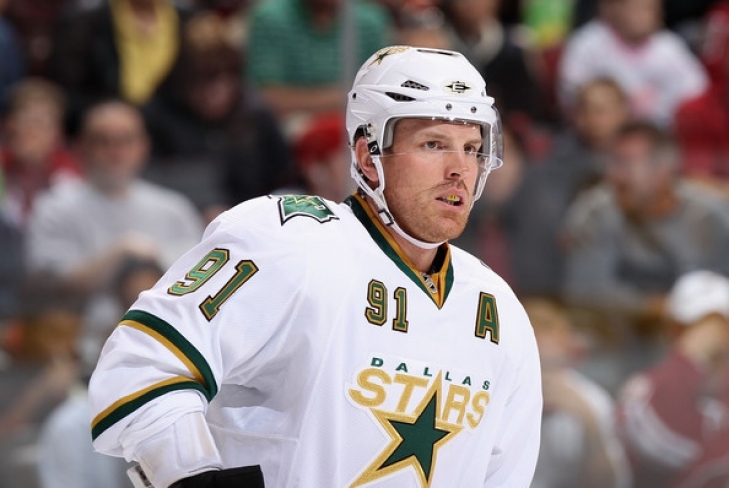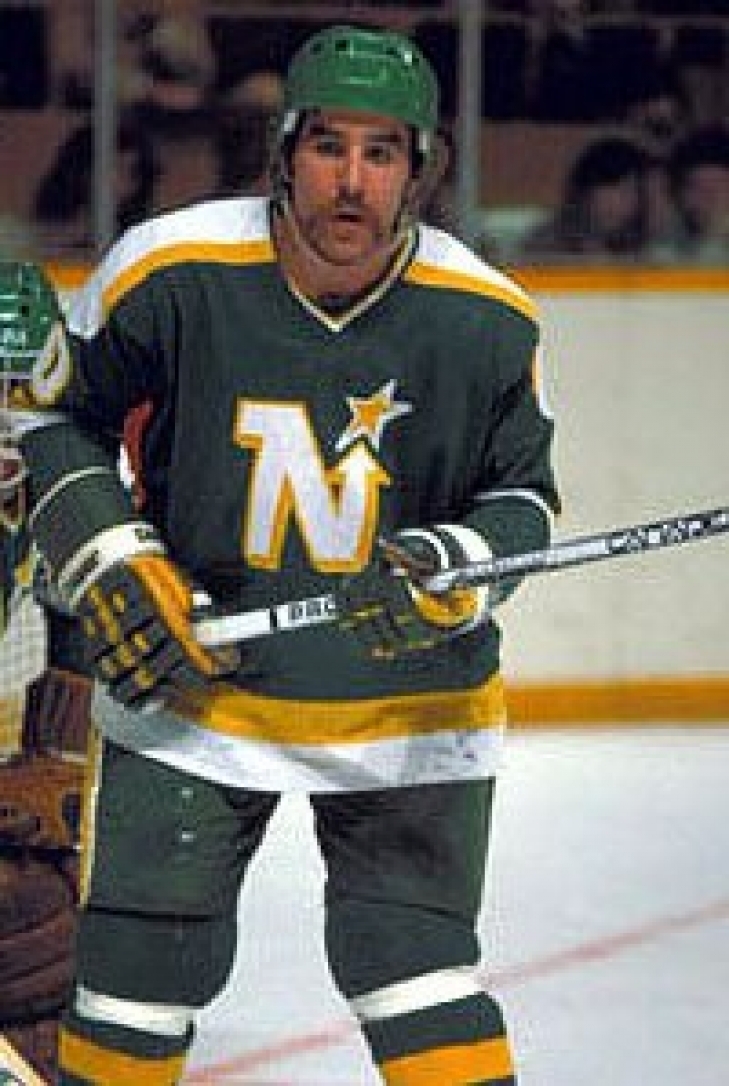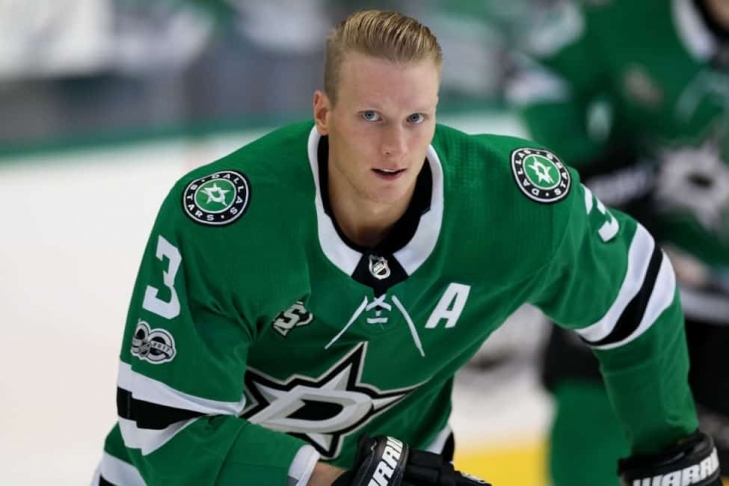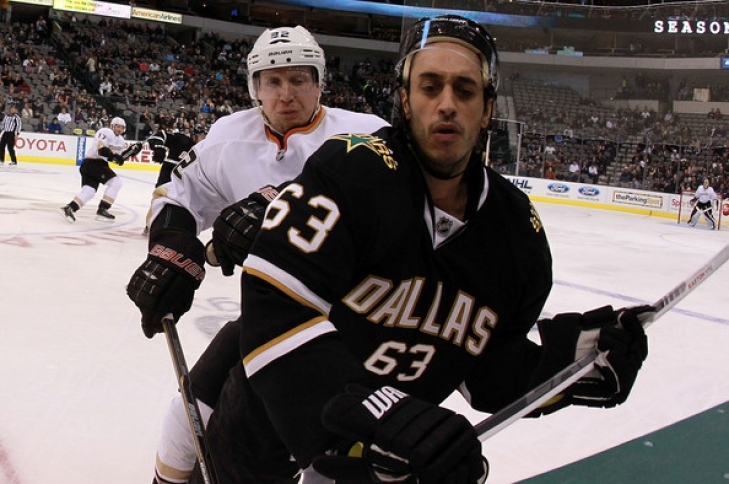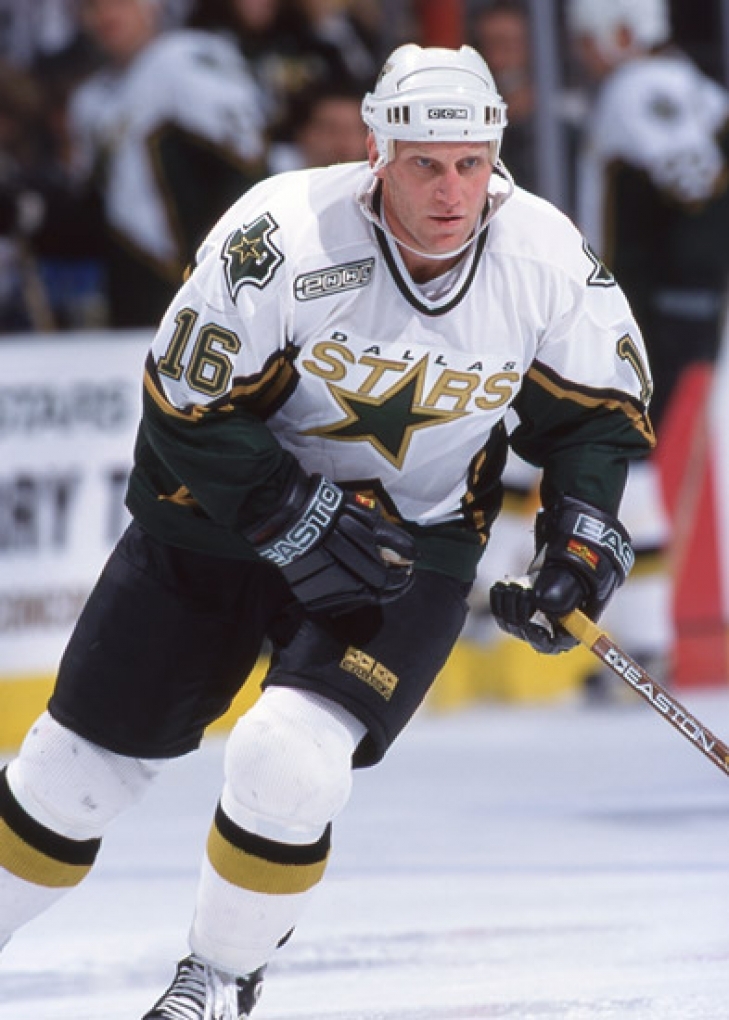43. Philippe Boucher
42. Brad Richards
Brad Richards will always be (and rightfully so) associated first with the Tampa Bay Lightning as it was there where he won the Lady Byng, the Conn Smythe and the Stanley Cup. With all of that being true, Richards was quite good in Dallas in the three years and change he played there.
45. Lou Nanne
If this list were in regards to overall importance to the organization Lou Nanne would be in the top ten. Following his playing days he was the team’s coach for a brief time and the General Manager for a decade and it was his moves that built Minnesota into one of the more exciting teams of the 80’s, which featured a trip to the Stanley Cup.
40. Dennis Hextall
Dennis Hextall was only with the Minnesota North Stars for four and half seasons but the plucky undersized forward out up the best numbers of his career playing there.
44. Gordie Roberts
Like many Defenceman Gordie Roberts did not light the lamp often but he did provide offensive spark providing the Minnesota North Stars with 30 Assists or more five times. Perhaps calling Roberts a “spark” is inaccurate as he was better classified as a rugged player who could steal the puck and help create a counter attack, something that he did often. While Roberts did not win a Cup with the North Stars his veteran presence was felt in back-to-back titles with the Pittsburgh Penguins.
16. John Klingberg
From Sweden, John Klingberg was an Alternate Captain of the Dallas Stars who averagedat least two thirds a point per Game as a Star. Klingberg won the World Hockey Championship with Sweden in 2017 and has scored 40 Points or more in his first five seasons in the NHL, his best being a 67 Point campaign in 2017-18, where he was ninth in Assists.
41. Al MacAdam
Prior to being a North Star, Al MacAdam was a two-time All Star with Cleveland Barons, the team that merged its assets with Minnesota in 1978. The Right Winger might not have been named an All Star while he played for Minnesota but it was while wearing the green, gold and white that he had his best season, a 94 Point campaign in 1979-80 where he would also win the Bill Masterton Trophy.
34. Tim Young
Tim Young spent the majority of his professional career with the Minnesota North Stars where he averaged a very good .88 Points per Game. In his second season, Young was named an All Star and finished the season with 95 Points, which was good enough for 5th in the NHL. While he never finished in the top ten in scoring again, he did have two more seasons of 60 or more Points.
36. J.P. Parise
J.P. Parise was one of the many beneficiaries of the 1967 Expansion and in his late 20’s would find solid footing as a top forward for the Minnesota North Stars. Parise would score 70 Points in two different seasons, the first of which (1969-70) would see him finish seventh in the NHL in Points and sixth in Assists. Twice an All Star with Minnesota, Parise would go onto play for the New York Islanders and later Cleveland, and due to the teams merger with Minnesota he would return to the team where he had his greatest glory. He would serve as the team’s Captain in what would be his final year in the NHL.
38. Fred Barrett
While somewhat injury prone Fred Barrett found away to play 745 Games in the National Hockey League (730 of which were with the North Stars). Barrett was an energetic force on the ice and in the locker room making him an asset to the team despite his relatively low production on the box score.
30. Brad Maxwell
Brad Maxwell was known for his powerful shot and playmaking ability, which allowed him to become a potent force on the offensive side of the rink. An All Star in 1984, Maxwell had four seasons for Minnesota where he exceeded 35 Points, his highest being a 74 Point campaign in the 1983-84 season, an excellent number for a defenseman.
28. Danny Grant
While Danny Grant was a member of the Montreal Canadians 1968 Stanley Cup Championship team, he was still considered a rookie when he was traded the following off season to the North Stars. This is notable as he would become the Calder Trophy winner in the 1968-69 Season.
32. Stephan Robidas
Stephane Robidas was an offensive stud as a junior hockey player but as a professional his blueline game blossomed; especially with the Dallas Stars. Robidas would hone a balanced game in Texas and is one of the few players of the organization to play in over 700 Games.
24. Richard Matvichuk
In terms of tenure, Richard Matvichuk is near the top of the list. The Defenceman is one of the few players who had over 700 Games for the Dallas Stars (733). Maavichuk was not known for his offensive style but his stay-at-home defensive style was sound and was helpful in the Stars first Stanley Cup in 1999. He was with the organization for twelve years, which certainly made him worth a first round selection.
29. Loui Eriksson
19. Mike Ribiero
Mike Ribiero had a long career in the National Hockey League, the center of which was with the Dallas Stars. It was also the best part of his career.
31. Curt Giles
There was nothing flashy about the game of Curt Giles but NHL teams need players who are defensive stalwarts, which was a role that he played very well.
23. Gilles Meloche
27. Brett Hull
Is this rank too high or too low?
If you think it is too high, perhaps it is because you are pointing at the fact that Brett Hull was only with the Dallas Stars for three seasons, not a long period of time compared to many on this list. While he was an All Star once in Dallas and was still certainly productive, he was not putting up the same explosive numbers he did in St. Louis where he led the NHL in Goals, three of which were 70 plus. His highest goal scoring season in Dallas was 32.
26. Cesare Maniago
Cesare Manigo may not have been an elite Goalie in the National Hockey League but he was a workhorse backstop who became successful in the expansion era. Maniago may not have brought the Minnesota North Stars to the Finals, but his defensive skill brought them closer to the Holy Grail of Hockey than they probably deserved at the time.



